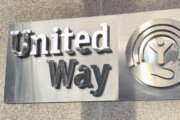Take charge of your finances.
With smartphones playing a pivotal role in our daily lives, it only makes sense that they would eventually become an integral part of money management.
Today, consumers who want to budget and track their spending can choose from a variety of robust app options. These often go beyond basic budgeting and can be customized to provide spending alerts, automate savings and run financial reports.
The best budgeting app for you will depend largely on your preferences and personal goals. Here’s a look at 10 money management apps and where each excels. All are compatible with Apple and Android devices, unless otherwise noted.
Best Free Budget App: Mint
A pioneering budget app, Mint remains popular today. It provides comprehensive budgeting tools while also being free to download and use.
“This app is compatible with nearly any device and is very easy to learn and use, even if you have no prior experience with budgeting apps,” says Erica Seppala, financial analyst for MerchantMaverick.com, a website for small businesses.
Mint allows users to link and manage accounts from multiple institutions. Plus, the app categorizes spending and creates a recommended budget that can then be adjusted. It also provides free access to credit scores, tracks investments, sends alerts when purchases post to an account and provides customized money-management tips.
“The one biggest downside to Mint is that it is ad-supported,” Seppala says.
However, for $4.99 a month, users can upgrade to Mint Premium which is an ad-free experience that comes with extra perks like a subscription cancellation service. While the regular version of Mint is available for Apple and Android devices, Mint Premium is currently only compatible with iOS.
Best for Budgeting Beginners: Simplifi by Quicken
Quicken has long been one of the most recognizable names in budgeting software, and the company has a mobile app for those who are looking for a streamlined budget tool.
The Simplifi app allows people to link and sync an unlimited number of bank, credit card, loan and investment accounts from more than 14,000 financial institutions. The app can automatically detect regular bills and recommend a personalized spending plan. Users can set up a watch list for monitoring certain categories of spending, such as dining out, and receive alerts when their spending reaches a certain level.
Simplifi by Quicken is ad-free, and users pay $3.99 per month or $47.99 when billed annually. A 30-day free trial is available.
Best for Tracking Investments: Personal Capital
Personal Capital distinguishes itself from other apps by including a wealth management component. The app can be linked to a variety of financial accounts for budgeting, tracking net worth and monitoring portfolio performance.
“Budgeting can be incomplete without considering prudent investment opportunities,” says Kunal Sawhney, CEO of Kalkine Group, an equities research firm. He points to Personal Capital as being the preferred app for many people nowadays. “This is because one can always add the paid investment management option to the basic free budgetary tools.”
Personal Capital is a free budget app to download and use. However, there is a fee for personalized investment advice and services. The fee starts at 0.89% for portfolios valued up to $1 million and then drops for those with investments greater than that amount.
Best for Zero-Based Budgeting: YNAB
Previously known as You Need a Budget, YNAB is both an app and a software program that can be used across multiple platforms to create zero-based budgets. Users can link bank accounts, create a budget and continuously sync data, offering an ideal solution for those who want to watch financial transactions in real time. The app can also track goals and create reports detailing financial progress.
While YNAB provides a variety of resources for users to navigate the software, those new to budgeting may find the app to be a bit unwieldy. Starting with the desktop version of the program may be better until you’re familiar with the concept of zero-based budgeting.
YNAB is free for the first 34 days and charges a $14.99 monthly fee thereafter or an annual fee of $98.99. Budgeting tools, such as forums, podcasts and videos, are also provided to help people create a budget and stick to it.
Best for Envelope System Budgeting: Goodbudget
The envelope system is a popular budgeting technique that has traditionally involved dividing cash into envelopes earmarked for certain purposes. When the money in an envelope runs out, that means it is time to stop spending in that category.
“This method helps prevent overspending while allowing you to keep a closer eye on your finances,” Seppala says. “Goodbudget offers a modernized version of this system, allowing you to divide your money across digital envelopes instead of physical paper envelopes.”
Goodbudget can be synced across multiple devices so spouses and partners can easily see how much is available to spend in each category. The app also includes tools to save for future expenses and pay off debt. However, be aware that Goodbudget won’t sync to your bank account, and transactions must be entered manually.
The free version of Goodbudget allows for the creation of up to 20 envelopes total and can be used on two devices. For unlimited envelopes, access on five devices and seven years of account history, upgrade to a Plus account at a cost of $8 per month or $70 when billed annually.
Best for Budgeting and Banking in One Place: Douugh
This app is a bank account and budgeting app rolled into one. Douugh provides users with a checking account and debit card that can be used in conjunction with its app.
Among the app’s functions is an auto-budget tool that will effortlessly create a spending plan for users. Purchases can be rounded up, and the change saved toward designated goals. Each week, users get a weekly wrap-up of their finances, and Douugh provides a monthly review of spending as well.
Douugh is free to use for the first 28 days and then costs $4.99 per month. There may also be fees for using out-of-network ATMs.
Best Streamlined Budgeting App: PocketGuard
PocketGuard has a clean and simple interface that makes it easy to quickly see where your money is going and how much is available to spend.
The app allows users to link bank accounts, credit cards, loans and investments to provide a complete financial picture. It then categorizes spending and calculates how much is left after the bills are paid, providing a simple way to create a budget automatically. You can set savings goals as well, and PocketGuard will automatically deduct and track contributions toward those goals.
The basic version of PocketGuard is free to use while PocketGuard Plus costs $7.99 per month or $34.99 per year. There is also a one-time lifetime purchase option of $79.99. The paid version includes additional tools such as customization options and the ability to split transactions among categories.
Best for Earning Rewards: Mooch
Mooch is another budgeting app based on the envelope system, but it works differently from other available programs, says co-founder Kevin Jiang.
“There are a lot of apps that do the tracking piece,” according to Jiang. However, Mooch doesn’t just track money. It transfers funds to “envelopes” held in a separate FDIC-protected bank account. Then, when it’s time to pay a bill, Mooch transfers the money back.
For instance, if someone is paid biweekly and has a monthly rent payment of $1,000, Mooch will transfer $500 to the rent envelope each pay period. That way, the money is set aside and won’t be spent on other purchases. If you need to save for a longer-term goal, such as a new car, Mooch can automatically calculate how much to save each month.
“You can basically set up envelopes inside of Mooch for anything,” Jiang says, but his team recommends new users avoid budgeting too aggressively to start. Instead, it’s better to begin with only a few envelopes. The app is also designed to notify users if their budget is unrealistic.
As an added perk, Mooch offers cash rewards when users pay bills from their envelopes. Those work out to about 2%, Jiang says, and the company is looking into offering cyptocurrency rewards in the future. There is currently a waitlist for the app, which is only available on iOS devices, and Jiang says most people get off the waitlist in one to two months.
Best for Tracking Expenses With Housemates: Wally
You don’t have to be in the U.S. to use Wally. The app syncs to 15,000 financial institutions across 70 countries and can track transactions in more than 200 currencies.
Like other budget apps, Wally lets users track spending by category, create bill reminders and see upcoming transactions. However, it is also the best money management app for those who share expenses with others, such as couples or roommates. Users can create groups where people can track shared accounts and budgets together.
Wally is only available for Apple devices, and the basic version is free to download and use. Some features are only available as part of Wally Gold, which is available for $8.99 a month or $39.99 for a year.
Best for People Who Love Spreadsheets: Tiller Money
Tiller Money isn’t an app but still deserves a spot among the best budgeting tools. It’s an ideal option for those who love using spreadsheets but hate the hassle of having to input data. Tiller can automatically import data from more than 21,000 financial institutions into Google Sheets or Microsoft Excel.
Imported transactions are automatically categorized according to rules created by the user, and Tiller provides dozens of spreadsheet template options. The Foundation Template combines monthly and yearly budget sheets along with financial insights and transaction tracking. Each spreadsheet can be customized, and the program will send a daily email of financial activity.
Tiller is ad-free and offers a 30-day free trial. After that, it costs $79 per year.
The best budgeting apps:
— Mint.
— Simplifi by Quicken.
— Personal Capital.
— Goodbudget.
— YNAB.
— Douugh.
— PocketGuard.
— Mooch.
— Wally.
— Tiller Money.
More from U.S. News
Signs Your Romantic Partner Is Financially Unstable
10 Best Budget Apps originally appeared on usnews.com
Update 05/05/22: This story was published at an earlier date and has been updated with new information.







